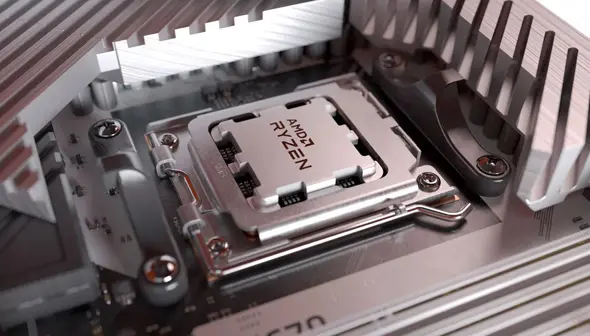AMD’s upcoming Zen 6 “Medusa” CPUs is rumored to feature a big boost in core count

According to a leak from Moore’s Law is Dead, AMD aims to achieve a considerable rise in the number of CPU cores with their forthcoming Ryzen chipsets. With a 50% increase in CPU cores per CCD, the Ryzen 9 models could potentially offer 24 cores total, assuming AMD maintains its typical dual-CCD Ryzen 9 architecture.
These new 12-core Zen 6 CCD CPUs are expected to be integrated across AMD’s entire next-gen CPU portfolio. This design will be utilized in AMD’s future EPYC (Venice) processors, as well as their Medusa Point/Medusa Halo mobile lineups. This strategy allows AMD to apply their Zen 6 CCD design across a wider array of chips, boosting production capabilities while reducing overall chip development expenses.
AMD is anticipated to employ TSMC’s 3nm fabrication process for manufacturing these 12-core Zen 6 CPU CCDs. The amount of cache these CCDs will have remains uncertain. If AMD chooses to maintain 4MB of L3 cache per core, the new 12-core CCDs would encompass 48MB of L3 cache (excluding V-Cache), marking a 50% increase from the 8-core Zen 5 CCDs. However, this heightened cache volume is purely speculative, as AMD might take a different path with their Zen 6 CPU offerings.
As previous leaks have indicated, AMD’s Zen 6 CPU chips will feature a revised interconnect design between CPU CCDs and IO dies. According to Moore’s Law is Dead’s source, AMD plans to implement a silicon interposer, facilitating a higher bandwidth and lower latency interconnect for users. This should reduce memory latencies, enhance inter-CCD bandwidth, and contribute to improved performance for the Zen 6 CPUs.
With the introduction of 12-core CCDs, AMD’s next-generation Ryzen processors are likely to showcase elevated core counts. This will significantly enhance AMD’s multi-threaded performance. Furthermore, the new interconnects should also help optimize the performance of AMD’s dual-CCD processors. Reduced latencies and increased inter-chip bandwidth will help mitigate performance challenges that multi-CCD AMD CPUs face in certain workloads.
And as always, while waiting for more exciting news, remember to use our comparison tool to find the best deal for your next favorite game.
- Most Popular
-
£13.90Architect Life A House Design SimulatorDriffle
-
£78.40Grand Theft Auto 6GAMESEAL
-
£22.80Clair Obscur Expedition 33Kinguin
-
£17.73Call of Duty Black Ops 6K4G
-
£15.54EA FC 25CJS CD Keys
- New games
-
£16.27DOOM The Dark Ages Premium UpgradeEneba
-
£16.23Yasha Legends of the Demon BladeKinguin
-
£34.99DOOM The Dark AgesSteam
-
£13.11Labyrinth Of The Demon KingK4G
-
£13.67The PrecinctKinguin
- Available soon
-
£23.73RoadCraftKinguin
-
£24.01MOBILE SUIT GUNDAM SEED BATTLE DESTINY REMASTEREDYuplay
-
£38.78Blades of FireKinguin
-
£14.79Survive the FallDriffle
-
£14.24Deliver At All CostsKinguin



